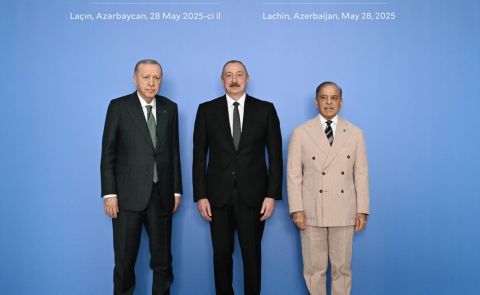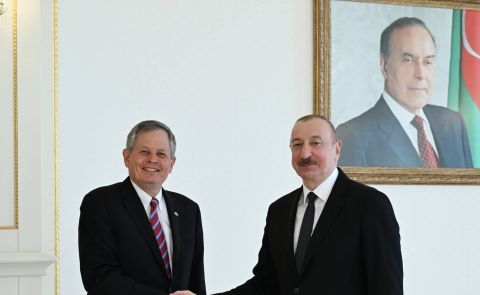
Georgian government adopts budget for 2020

On 30 September, the Georgian government drafted the state budget for the year 2020. The government set a forecast for economic growth of 5%. External debt will increase by 1.855 billion lari and domestic debt will increase by 900 million lari. In general, by the end of 2020, public debt will reach 45% of GDP. By the end of 2020, public debt will amount to 22.681 billion lari, of which 17.711 billion lari - external debt and 4.970 billion lari – domestic debt, reported vestnikkavkaza.
Prime Minister Giorgi Gakharia underlined the key principles of the state budget. “Firstly, it is a citizen-oriented budget creating greater opportunities for citizens, one of social responsibility to the citizens. Secondly, equally prioritized are infrastructural projects critically important for economic development, and that, among others, aims to enhance the effectiveness of our economy. Thirdly, we prioritize budget effectiveness management. And here we cannot allow any compromises. That is why, my friends, the key obligations that your respective ministries carry must be fulfilled in a timely and effective manner. Another critically important principle involves maximally abstaining from growing expenses wherever it is possible, and even curbing expenses, if possible,” he said.
A major point of the state budget involves a 20 GEL increase in pensions for all pensioners, also for group 2 persons with disabilities and persons under 18. Pensioners aged over 70 will enjoy an additional 30 GEL increase of pensions starting on July 1, resulting in a total of 50 GEL increase in pensions for this group of citizens. Salaries will increase for full-time teachers in both this and next year. Consequently, their raise by the 2020 academic year will reach 300 GEL. “The new budget also envisages increasing the salaries of kindergarten teachers by 100 GEL. The total expenses in the education infrastructure amount to nearly 280 million GEL,” according to the Minister of Finance Ivan Matchavariani.
Matchavariani also spoke how much money will be invested in the infrastructure sector. “Approximately 700 million GEL is to be allocated for high-speed highways, meaning the launch of 175 km of roads in accordance with international standards. Municipal transport remains a priority and we will have new buses next year. Displaced persons are also among our major priorities. Their living conditions will certainly be improved, including purchasing apartments in different cities throughout the country: Tbilisi, Batumi, Zugdidi and Kutaisi. 112 million GEL has been allocated for this project,” he stated.
In terms of Georgia’s defence policy, the most important is to care for Georgian soldiers and to increase the defence capability of the country. “The main focus will be on infrastructure development. My main task will be to upgrade the front as much as possible and start upgrading at almost every base – military bases, barracks, shower rooms, canteens. We will improve soldiers’ outfits, attire, shoes and more. The nutrition will become better than it is today. Physical trainings of the military will be continued. We also envisage a salary increase. There are several categories with salaries rising from 100 to 500 GEL by military ranks. The budget also includes improvement of insurance and conditions of the wounded and injured,” said Minister of Defence Irakli Garibashvili. The budget of the Ministry of Defense will be 880 million GEL in 2020.
The last of the main priorities of the government for 2020 is the continuation of the privatisation process of state property. “The goal is to increase the privatisation income in the state budget. This year we had planned to privatise 60 million GEL ($20.15 mln/€18.45 mln); this plan has already been carried out. As of today, income from privatisation in the budget amounted to 73 million GEL ($24.52 mln/€22.45 mln) and it will increase up to 100 million GEL ($33.59 mln/€30.57 mln) until the end of this year,” said Minister of Economy Natia Turnava, adding that privatisation is important for increasing employment and noted that there are many buildings, factories and other constructions, especially in the regions which should be bought by businesses and be privatized.
Siehe auch


Aserbaidschan, die Türkei und Pakistan betonen auf dem Gipfeltreffen in Lachin ihre wachsende strategische Zusammenarbeit

Ilham Alijew trifft US-Senator Steve Daines zur Erörterung der Stärkung der Beziehungen zwischen Aserbaidschan und den USA

Dmitry Volvach Reports 60% Growth in Azerbaijan-EAEU Trade Over Three Years

Ungarn besteht auf gleicher EU-Finanzierung für Armenien und Aserbaidschan

